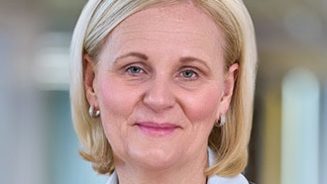Carrick’s current network includes Botswana, South Africa, Zimbabwe, Mauritius and now Malawi.
Carrick chief executive Craig Featherby said the opening was part of the firm’s Africa 2020 ‘road map’, which includes plans to open offices in Kenya, Ghana, Tanzania, Mozambique, and the Ivory Coast.
“We believe that the long-term growth projections for Africa, and especially those we have targeted, such as Malawi, are positive. All of them have shown an increase in GDP over the last five to seven years. And combined with the political stability in Malawi over the last 20 years, we believe this growth bodes well for our new office.”
Since 1993, Malawi held five presidential and parliamentary elections. According to a recent World Bank report, Malawi’s GDP growth in 2017 will be more than 4.5% — a 2% increase over last year. In addition, inflation between 2016 and 2017 dropped by 13.5%, to 9.3%.
Featherby highlighted other factors that he believes will contribute to Malawi’s growth and support Carrick’s decision to open for business, the most important of which was urbanisation.
Currently, an estimated 16% of its population of about 17 million lives in urban areas. This demographic is changing rapidly.
“The four major urban centres of Malawi are the economic core of the national economy,” he said. According to the World Bank, they comprise 33% of GDP, despite the small size of the urban population.
“Cities are a key to capturing Africa’s consumer opportunity,” said Featherby, noting out that in Nairobi, Kenya, per capita consumption is more than double the national average, and that the top three cities in Ghana account for more than 65% of national consumption.
“Africa’s rapid urbanisation, its young population, and its growing labour force makes it — and Malawi — a highly valuable asset in our plan to realise the potential of the continent’s economies,” he added.
Malawi managing director Gomez Kumwenda said that this was an exciting opportunity, not only for the Carrick team but also for the potential clients in the country.
“We believe that recent events in Malawi have emphasised the need to have in place strong fiscal regulatory controls, and that this has made doing business much more transparent and efficient,” he said.
“We look forward to implementing our vision of working with clients on their long-term financial planning, helping to grow their wealth, protect it from excessive and unforeseen risk, and preserve it for their children.”





